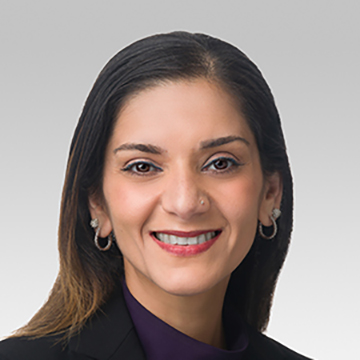K12 Scholar Alumna among Three Inducted into ASCI
Three NUCATS Institute members have been inducted into the American Society for Clinical Investigation (ASCI), one of the oldest medical honor societies in the U.S.
This year’s ASCI inductees include Tamara Isakova, MD, MMSc, the Fowler McCormick professor of Nephrology and director of the Center for Translational Metabolism and Health within the Institute for Public Health and Medicine; Sadiya Khan, ‘09 MD, ‘14 MSc, ’10, ’12 GME, the Magerstadt Professor of Cardiovascular Epidemiology; and Amisha Wallia, MD, ’11 MS, ’08 GME, associate professor of Medicine in the Division of Endocrinology, Metabolism and Molecular Medicine, and of Preventive Medicine in the Division of Epidemiology.
“It is truly a privilege to be recognized by the ASCI and to be elected into this renowned and distinguished community of physicians and researchers,” says Khan, a NUCATS K12 Career Awardee and graduate of the Master of Science in Clinical Investigation program. “It is a testament to the collaborative multidisciplinary research community that I have been surrounded by here at Northwestern University that has supported me, my research team and our work.
Khan is a leading expert in cardiovascular epidemiology and was recently a guest on the Science in Translation podcast. Her research focuses on the epidemiology, prevention and genetics of cardiovascular disease, with a particular emphasis on risk factors unique to women, such as adverse pregnancy outcomes. She recently led the American Heart Association’s updated cardiovascular disease risk prediction tool. She has published more than 370 peer-reviewed scientific research articles.
“As a preventive cardiologist and cardiovascular epidemiologist, I am hopeful the work we are doing to improve cardiovascular disease risk assessment will advance our understanding of the mechanisms underlying cardiovascular disease, inform novel therapeutics and, ultimately, improve population health,” she says.
Khan’s research has also been highlighted by the American Heart Association as among the Top Advances in Heart Disease and Stroke Research for five consecutive years (2020–2024). She has also served as associate editor for JAMA Cardiology and on the American Heart Association/American College of Cardiology Joint Committee on Clinical Practice Guidelines that oversees all guideline documents for the cardiovascular community.
Isakova’s research examines the intricate relationships between kidney disease, bone health and cardiovascular complications, with the goal of developing strategies to improve patient outcomes.
“When I was first starting out as a new research fellow in the field of mineral metabolism, I read many seminal papers that were published in the Journal of Clinical Investigation, which is the leading journal of the American Society of Investigation,” she recalls. “These papers remain in my mind the paragons of excellence in detailed physiologic investigation of humans, and they inspire me to keep working hard to generate the fundamental knowledge that is needed to advance the practice of medicine and to mentor others as they begin to follow the path of clinical investigation.”
Wallia’s research has been instrumental in identifying the adverse effects of hyperglycemia and hypoglycemia in underrepresented populations, leading to the development of new care strategies.
“I am incredibly grateful for this great honor to join esteemed colleagues and fellow physician scientists. My parents, both physicians, immigrated to this country to pursue the great opportunities available here; this is truly the American dream for my family, a long line of physicians,” she says. “I am especially grateful for the mentorship and support I have received at Northwestern. I would also like to thank my collaborators, colleagues and family for supporting me during my career.”
Wallia is a distinguished endocrinologist and investigator specializing in diabetes and its complications. Her research works to improve outcomes for high-risk populations, including individuals with diabetes undergoing solid organ transplantation and those hospitalized with recurrent diabetic ketoacidosis. Her innovative work has utilized pragmatic trials, health record linking, and user-centered design to address disparities in diabetes care and implement impactful changes in clinical practice.
The ASCI, founded in 1908, is a medical honor society composed of more than 3,000 physician-scientists who are advancing research, clinical care, medical education and leadership in academic medicine and the life sciences industry.
Written by Olivia Dimmer





